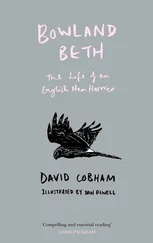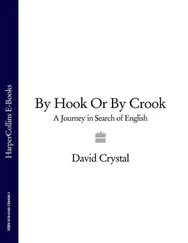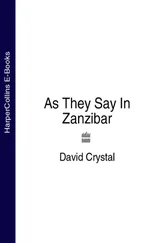Over 500 words came into English from Latin during the earliest period of Old English. We can never be sure exactly when they arrived. Some would have been picked up by the Celtic-speaking Britons during the Roman occupation and become familiar to the first Germanic settlers. Some would have been brought over from the continent of Europe in the Anglo-Saxon boats. And the Latin-speaking monks would certainly have added to the number.
The new words expressed a wide range of notions. There were words for plants and animals, food and drink, household objects, coins, clothing, settlements and building materials, as well as to do with military, legal, medical and commercial matters. Candle and kettle , cup and kitchen , cat and dragon , are all originally Latin words. So are butter , cheese , sack , wall , mile and wine .
Words from Latin continued to come into English throughout the Anglo-Saxon period, but they changed their character. The teaching of the Church had to be communicated to the people, so new vocabulary was needed to express the new concepts, personnel and organisational procedures. Words such as altar , creed , deacon , school and philosopher arrived. So did grammar .
Meanwhile, street was developing its own meanings and uses. We find several old idioms, such as by sty and by street or by street and stile . If something happened ‘by sty and by street’, it was happening ‘everywhere’. Another medieval idiom was to wend one’s street , meaning ‘to go one’s own way’. And if you took the street , it meant you were setting out on a journey. These all died out in the 1500s.
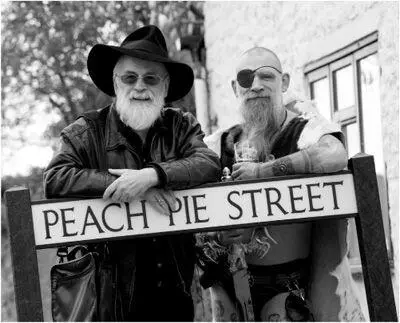
2. Terry Pratchett (left), and a character from his Discworld saga, at one of the streets in Wincanton, Somerset, named after a location in the series. Why Wincanton? It had twinned with the fictional city of Ankh-Morpork in 2002.
But new uses were arriving. In the 16th century the street came to be used for the money-market area of London. In the 18th century we find it referring to a locale for prostitution ( on the street ) as well as a description of the average person ( the man on the street ). In the 19th century, on the street developed the meaning of ‘homeless’. And the word continued to grow. Streetwise arrived in the 1940s. To be street — in tune with urban subculture — in the 1970s. It was followed by street credibility , soon shortened to street cred . In the 1990s street became a term for a type of skateboarding.
So what happened to the original meaning of street ? For a long time it was used as part of a description of the highway, as in Broad Street and Mill Street . Even today British English keeps the definite article in front of some of these names: we say I was shopping in the High Street , not… in High Street . Eventually other criteria were used, such as the name of an important person ( Wellington Street ) or occupation ( Brewer Street ). American English went in for numerals and letters: M Street , 32nd Street . Today, virtually any word in the language can be used along with street . In 2009 a new road in Wincanton, Somerset, was named after a location in a Terry Pratchett Disc-world novel: Peach Pie Street .
 7. Mead — a window into history (9th century)
7. Mead — a window into history (9th century)
Today we think of mead as a rather exotic alcoholic drink, made by fermenting a mixture of honey and water. In early history it was the alcoholic beverage of choice throughout ancient Europe, Asia and Africa. Some think it was the first fermented drink. It makes frequent appearances in the Germanic folk-tales of the first millennium and repeatedly appears in Anglo-Saxon manuscripts, such as the epic poem Beowulf .
Mead was more than just a drink. It was a symbol of power. If you had the time and luxury to sit around drinking mead, then all must have been well in your land. And conversely: if you didn’t have that opportunity, things must have been going badly. At the very beginning of Beowulf we are told that the king, Scyld Scefing, ‘from bands of enemies, from many tribes, took away mead-benches’. That settles it. They would have been victories indeed!
So it’s not surprising to find that there was a large vocabulary of mead -words in Old English. Through this single word we obtain a considerable insight into Anglo-Saxon culture and society. A settlement might actually be called a medu-burh — a place renowned for its mead-drinkers. Any warrior living there would make nightly visits to the medu-heall (‘mead-hall’) or medu-seld (‘mead-house’) — the equivalent of the modern city hall — where his leader would be holding court and feasting. How would he get there? By walking along a medu-stig (‘path to the mead-hall’) through the medu-wang (‘land surrounding the mead-hall’). All roads, it seemed, led to mead.
Once inside the hall, the vocabulary of mead was all around him. The place to sit was called a medubenc (‘mead-bench’) or medu-setl (‘mead-seat’). He and his fellow-warriors would engage in a lengthy bout of medu-drinc (‘mead-drinking’), taking a meduscenc (‘draught of mead’) from a medu-full (‘mead-cup’). He would soon get medu-gal (‘enthused by the mead’) and experience medu-dream (‘mead-joy’). If he had too much, he would end up medu-werig (‘mead-weary’).
It’s fascinating to see a word being used in this way, permeating so many aspects of social behaviour. And it’s a feature of English which we continue to exploit today. Whisky drinkers might buy a whisky bottle from a whisky shop or (in olden days) a whisky house , and pour a whisky peg from a whisky decanter into a whisky glass . They might become whisky sodden or develop a whisky voice . On the other hand, we don’t extend the usage as much as the Anglo-Saxons did. We don’t usually talk about whisky seats , whisky paths or whisky joy .
In the Middle Ages, mead changed its social standing in Britain. Wine became the drink of choice among the upper class, leaving mead, along with ale and cider, as the drink of the poor. Mead never died out as a drink, but it took second place to ale and cider, which were much easier to brew. Ale is used fifteen times in Shakespeare; mead not once.
Gradually, mead came back into fashion, sometimes developing new uses and shifting its meaning. In the 17th century it could be used to mean any sweet drink. Robert Burton used the term mead-inn in 1632, referring particularly to Russian drinking practices — a tavern where mead was the main drink sold. People in Britain in the 18th century drank mead wine .
In the USA, the name took on a different sense, referring to various sweet carbonated drinks sometimes flavoured with sarsaparilla. Americans continue to be strongly interested in mead today. There’s an International Mead Association, and a festival is held every year in Colorado. New mead -words continue to be coined. The occasion is a meadfest , and many meaderies and mead-lovers attend. There are meadmaking courses, meadings (tasting parties) and if you want you can read a meadzine .
Читать дальше
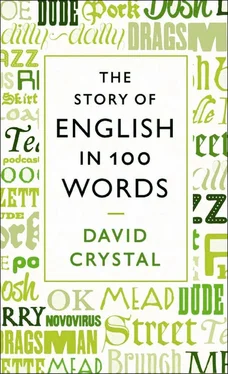

 7. Mead — a window into history (9th century)
7. Mead — a window into history (9th century)



